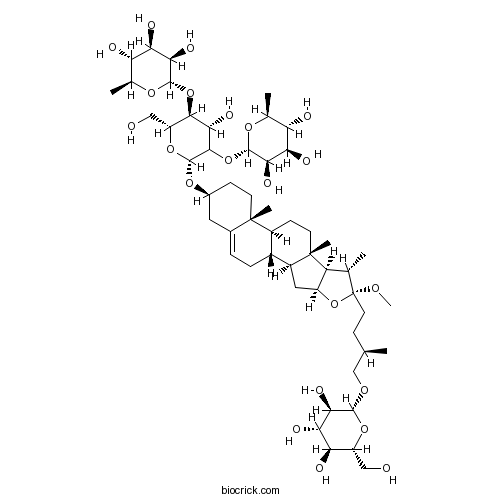Solanum undatum
Solanum undatum
1. The products in our compound library are selected from thousands of unique natural products; 2. It has the characteristics of diverse structure, diverse sources and wide coverage of activities; 3. Provide information on the activity of products from major journals, patents and research reports around the world, providing theoretical direction and research basis for further research and screening; 4. Free combination according to the type, source, target and disease of natural product; 5. The compound powder is placed in a covered tube and then discharged into a 10 x 10 cryostat; 6. Transport in ice pack or dry ice pack. Please store it at -20 °C as soon as possible after receiving the product, and use it as soon as possible after opening.
Natural products/compounds from Solanum undatum
- Cat.No. Product Name CAS Number COA
-
BCN6342
Methyl protodioscin54522-52-0
Instructions

Phylogeographic relationships among Asian eggplants and new perspectives on eggplant domestication.[Pubmed: 22387533]
The domestication history of eggplant (Solanum melongena L.) has long been debated, with studies unable to narrow down where domestication occurred within a broad region of tropical Asia. The most commonly hypothesized region is India, however China has an equally old written record of eggplant use dating ca. 2000 years before present. Both regions have a high diversity of landraces and populations of putatively wild eggplant: Solanum incanum L. in India and Solanum undatum Lam. in SE Asia. An additional complication is that there is taxonomic confusion regarding the two candidate progenitors. Here, we synthesize historic, morphologic, and molecular data (nrITS sequence and AFLP) to interpret the phylogeographic relationships among candidate progenitors and Asian eggplant landraces in order to test theories of domestication. A minimum of two domestication events is supported: one in India and one in southern China/SE Asia. Results also support separate domestication of S. melongena subsp. ovigerum, a group of morphologically distinct eggplants found in SE Asia, and suggest Asian S. incanum and S. undatum may not be genetically distinct. Routes of the spread of eggplant cultivation throughout Asia are proposed, and evolutionary relationships among allied species are discussed.


